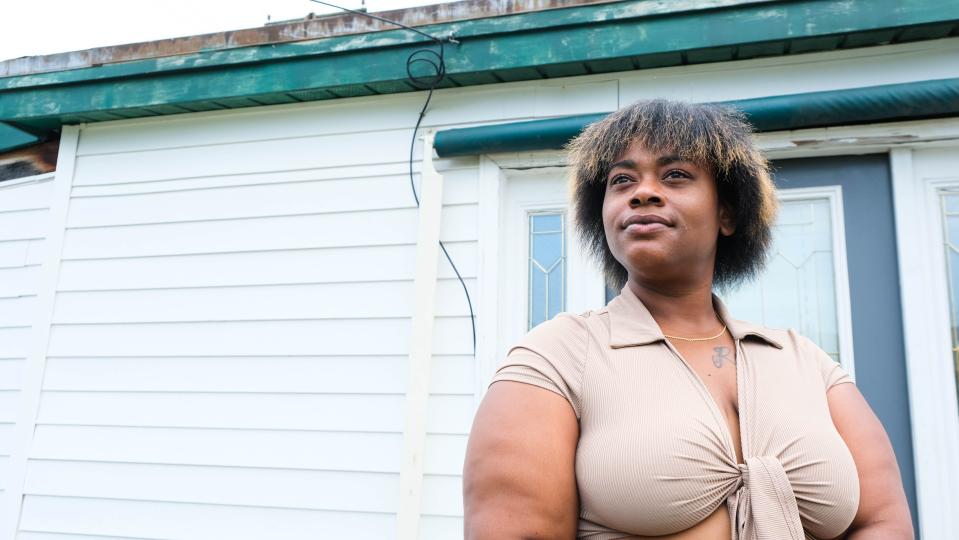'Perilous Course' investigates climate crisis, finds many along East Coast left unprepared
The climate crisis is battering us already.
It portends greater sacrifice in America’s future, larger cooperation between people and increases in innovative thinking. To comprehend what’s going on right now, you must widen the lens a little.
So we did, with a new USA TODAY Network project called "Perilous Course."
🌧️ 🥽 In the last two decades, Rhode Island saw five of its wettest years, while Georgia saw four of its driest years and three of its wettest years, according to a USA TODAY analysis of records from NOAA's National Climatic Data Center.
🌊 ⬆️ While sea levels are rising, the land surface along both the Atlantic and Gulf coasts of Florida is sinking.
🥵 ☀️ 🌆 Newark, New Jersey, and Philadelphia both saw their second-hottest July on record this year. Heat waves are forecast to increase in potency and duration because of climate change and temperatures in the U.S. could rise 3-12 degrees by the end of the century, scientists say.
🧂 💧 In the Chesapeake Bay region alone, more than 80,000 acres of forest have been turned into salt marsh in the last 150 years, according to research from the Virginia Institute of Marine Science.
We sent a team of journalists out this summer along the East Coast to investigate. The resulting project tells the story of what we saw, the questions we asked and who we met.
“I don’t know how we’re surviving."
ICYMI: Some neighborhoods in Delaware's largest city — limited in shade, sprawling in asphalt — feel heat further inflamed on summer's hottest days.
What are heat islands? A man-made danger to the most vulnerable: https://t.co/f2ObeXcQRf— Kelly Powers (@kpowers01) August 2, 2022
Abandoning a dream home
Glenda Browning had to abandon her dream house in Ocean Isle Beach, North Carolina. “Your windows are bowing, you hear crashing under your house, and you don't know if the pilings are going to hold you,” she said. The ocean is claiming her former home.
Anxious about climate legacy
Hyacinth Cox, age 18, tries to stay as up-to-date as she can on the climate crisis and it can be depressing. "I try not to let it consume my every waking thought because, if I do, that's just not going to be great for my mental health," said the Staunton, Virginia, teen. "But it definitely does upset me a lot, that it's happening and not enough is being done." She has worked on her climate crisis anxiety in therapy.
Almost drowned by repeated flooding
Randy Scott wondered if his death in his basement apartment in Mamaroneck, New York, would be in vain. He sat last fall in his basement, trapped, as water poured in and rose around him. He wondered if maybe local government would fix repeated flooding of his neighborhood, but too late for him.
He survived with neighbors' help but is back living in the same place and climate forecasts call for greater storms and flooding ahead. "I don’t know what I would do if" I faced the same danger again, he said. “I may not be lucky this time.”
As shown on the left, there’s very little tree cover in this urban neighborhood. Lots of impervious surfaces. On the right, a neighborhood 10 minutes away, where I’m tracking temperatures 6-7 degrees lower. pic.twitter.com/7ni5zUmW94
— Hadley Barndollar (@hbarndollar) July 27, 2022
Understanding starts with good information. New scientific forecasting, but also planning and communication from the governments we ask to protect us and prepare for what is coming. We found that coordinated, clear public action in this wide region is rare, at least for now.
We talked to more than 80 people from New Hampshire to Virginia to Florida and they helped us put the climate crisis into a human scale.

They are fleeing floodwater, lifting their homes, abandoning the places they live, mourning the loss of landscape and saving the most important cultural sites as best they can. These Americans showed us resilience, local cooperation and personal bravery. And desperation in the face of societal problems that are not of individual making.
Above all, it was plain as we reported our way through the summer: the environmental tide is rising. How will we navigate this Perilous Course?
— William Ramsey is an enterprise and investigations editor in the Atlantic region of USA TODAY Network.
This article originally appeared on The Providence Journal: Climate change and what you need to know, an East Coast investigation

